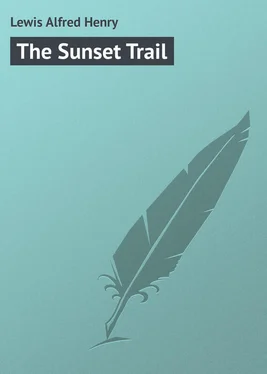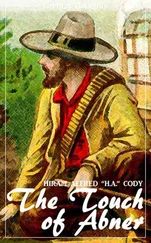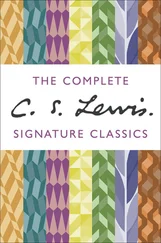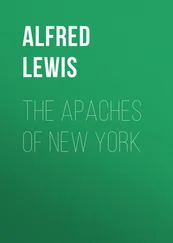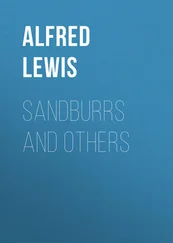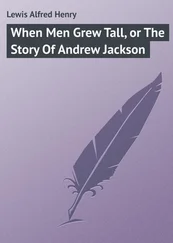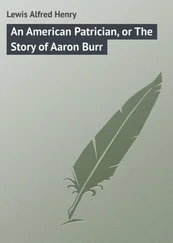Alfred Lewis - The Sunset Trail
Здесь есть возможность читать онлайн «Alfred Lewis - The Sunset Trail» — ознакомительный отрывок электронной книги совершенно бесплатно, а после прочтения отрывка купить полную версию. В некоторых случаях можно слушать аудио, скачать через торрент в формате fb2 и присутствует краткое содержание. Жанр: foreign_prose, foreign_adventure, на английском языке. Описание произведения, (предисловие) а так же отзывы посетителей доступны на портале библиотеки ЛибКат.
- Название:The Sunset Trail
- Автор:
- Жанр:
- Год:неизвестен
- ISBN:нет данных
- Рейтинг книги:5 / 5. Голосов: 1
-
Избранное:Добавить в избранное
- Отзывы:
-
Ваша оценка:
- 100
- 1
- 2
- 3
- 4
- 5
The Sunset Trail: краткое содержание, описание и аннотация
Предлагаем к чтению аннотацию, описание, краткое содержание или предисловие (зависит от того, что написал сам автор книги «The Sunset Trail»). Если вы не нашли необходимую информацию о книге — напишите в комментариях, мы постараемся отыскать её.
The Sunset Trail — читать онлайн ознакомительный отрывок
Ниже представлен текст книги, разбитый по страницам. Система сохранения места последней прочитанной страницы, позволяет с удобством читать онлайн бесплатно книгу «The Sunset Trail», без необходимости каждый раз заново искать на чём Вы остановились. Поставьте закладку, и сможете в любой момент перейти на страницу, на которой закончили чтение.
Интервал:
Закладка:
“By the way, Bat,” remarked Mr. Wright, when two days after the fight, life at the ’Dobe Walls had gone back to old-time lines, “we forgot to thank you for seeing those Indians that time. They’d have cinched us, sure, if you hadn’t; killed us, as it were, on the nest. It ain’t too late to take a drink on it, is it?”
“The drink goes,” returned Mr. Masterson, drawing up to Mr. Hanrahan’s counter, which was again happily in its place; “the drink goes, but it ought to be for Inez. It was she who gave warning. If it hadn’t been for Inez every man of us would have gone with Thurston, and those eighty bucks might be riding yet. It was pretty work, Bob, to stand off five hundred Indians fourteen days, and only lose one man against their eighty.” Here Inez came mincingly through the door, like a fine lady thinking on her skirts. She nosed up to Mr. Masterson for a caress. “That’s right,” said Mr. Masterson, patting her satin neck, “you’re just in time, Ladybird. We’re going to drink to the White Man’s Medicine, Inez, of the ’Dobe Walls.”
CHAPTER IV – THE WILD ROSE OF THE CANADIAN
The town’s name was Mobeetie and, for the expansive suddenness of its springing up, might better have been Mushroom. A Cheyenne killed a buffalo in the flats that stretch from the Canadian, and as he peeled the husk from that buffalo the nearest paleface was thirty miles away. The next day came engineers, and ran lines and mapped out town lots on the ground where that buffalo was slain; within a week thereafter Mobeetie buzzed and bustled.
Mr. Masterson, ever full of the spirit of progress, gave up buffalo hunting for the nonce, and carried “chain” and pegged corners, and did what other deeds an amateur might do towards aiding the surveyors in laying out Mobeetie. Later, he aided the public in laying out certain predatory characters who from time to time rode into Mobeetie with a purpose of spoil. These latter intermittent lifts to law and order endeared Mr. Masterson to Mobeetie; the more since he was not, speaking strictly, a resident of that hamlet, having his roofless habitat on the buffalo range, with a home-camp at the ’Dobe Walls.
All folk, whether they be white or black or red or wheat-hued, are idolators in their hearts, and those of Mobeetie worshipped Mollie Brennan. The women worshipped her because her little feet took hold on innocence, the men for the beauty of her face – for brown of cheek, and red of lip, and with eyes as softly, gently deep as are those of an antelope, Mollie Brennan was beautiful. To her worshippers Mollie Brennan was known as The Wild Rose, and the name had been given her after this fashion:
Misled by drink, a chance-blown poet once upon a time invaded the Panhandle. Beholding Mollie Brennan, he fell in love, as poets will, and sighed on her obdurate trail for a wasted twelve-month. Because she would not listen, the poet poured forth his soul in sonnets, in which vehicle of verse he identified Mollie Brennan as “The Wild Rose of the Canadian.” There were no wild roses along the Canadian, at least in any near vicinity of Mobeetie, but the love-wrung bard, more moved of the whiskey than the flora of the region, refused to be bound by that barrenness. “The Wild Rose” he made it; and, since his stanzas were granted local hearing, the Wild Rose it became, and Mollie Brennan accepted and wore the title pleasantly enough.
But the Wild Rose resolutely declined the hand of that poet; and because she would not hear him and he must tell some one, he was wont, after the fifth cup, to sob forth his soul and its defeat to the frequenters of the Lady Gay saloon. The defeat gave general satisfaction, for Mobeetie distrusted if it did not disapprove of poets, and in that harsh hour the Panhandle thought better of a Sharp’s rifle than of a sonnet. The poet, in a lucid moment, perceived as much, and, every hope of conquering the callous fancy of the Wild Rose having died, he got aboard the stage-coach for Dodge, bearing with him a bottle and a broken heart. His going was regretted at the Lady Gay, but the Wild Rose felt relieved.
Sergeant King was so early in his coming to Mobeetie as to be almost entitled to fame as one of its founders. Nor did the fact go without a value, since nothing but that residential antiquity had saved him from being warned to quit the town a dozen times.
Mobeetie confessed to no love for Sergeant King. He was dark of brow, with cruel mouth and furtive secret eye. He had been run out of Abilene, as the upshot of an enterprise wherein he combined a six-shooter with a deck of cards – the latter most improperly marked – and which resulted in the demise of a gentleman then and there playing draw-poker against him. Also, he was that creature – most detested and soonest to die in the West – a blusterer and a bully; and when a bit unbuckled of rum he would boast of the blood he had spilled.
This latter relaxation is exceeding bad form. Mobeetie could have overlooked the marked cards, since it is understood in the West that every gentleman, in what games of chance engage his interest, must be equal to his own protection or suffer those forfeits which nature everywhere imposes upon ignorance gone astray; it might have condoned the homicide, because, technically, it was a killing rather than a murder, and the departed wore his hardware at the time; even those hang-dog facial marks of an innate treachery would have passed unchallenged, for who may help his looks? but that braggart trick of, orally, reviewing what scalps he had taken, and exulting thereat, set public sentiment flowing against Sergeant King to such a height of disfavour that no one wanted his company and but few his gold. This last should be the measure of an utter public disregard for, however blackly hated your outlaw villain may be, his gold, as a rule, partakes in no wise of his unpopularity. For what says Vespasian? “The smell of all money is sweet.”
Following her inadvertent conquest of the poet, and his broken-hearted dismissal to Dodge, Sergeant King was that one who gave to the Wild Rose what he would have called his heart. The gift bred an alarm in her bosom beyond any induced by the rhyming passion of the sonneteer. Whereas the poet had only annoyed her, she drew back frightened in the base instance of Sergeant King. He saw and understood, and the bitterness which lay like poison at the bottom of his evil heart was stirred.
Every resident of Mobeetie, in an hour devoid of convention, was the acquaintance, if not the friend, of every other resident of that metropolis by dint of a citizenship common to both, and Sergeant King was therefore an acquaintance of the Wild Rose. However, what few words he addressed to her never went beyond the commonplace; warned as by intuition of her aversion, he offered no syllable of love. But his eyes, black, and burning with a hungry fire – half-hidden, half-bursting into flame – made no secret of those sentiments that had swept down Sergeant King; the Wild Rose could feel their glances play about her like a tongue of fire. There it stopped; if he possessed a hope of winning her, he never made it manifest – coming near her only with his eyes!
You are not to suppose that the Wild Rose went untouched of love. When a maiden refuses one man, it is a reason for believing she has given herself to some one else. Mobeetie had grown up a brisk three hours’ canter from the ’Dobe Walls, and Mr. Masterson was frequently about its causeways. Buffalo hunting would wax monotonous betimes, and in what moments it palled upon him Mr. Masterson unbent in visits to Mobeetie. Thus the Wild Rose caught frequent glimpses of him, and the heart which had refused the poet, and was closed fast and fear-locked against Sergeant King, went following Mr. Masterson with its love. The Wild Rose learned to know the very jingle of his spurs, and their melody about the board sidewalks of Mobeetie would bring her face to the pane.
Читать дальшеИнтервал:
Закладка:
Похожие книги на «The Sunset Trail»
Представляем Вашему вниманию похожие книги на «The Sunset Trail» списком для выбора. Мы отобрали схожую по названию и смыслу литературу в надежде предоставить читателям больше вариантов отыскать новые, интересные, ещё непрочитанные произведения.
Обсуждение, отзывы о книге «The Sunset Trail» и просто собственные мнения читателей. Оставьте ваши комментарии, напишите, что Вы думаете о произведении, его смысле или главных героях. Укажите что конкретно понравилось, а что нет, и почему Вы так считаете.
